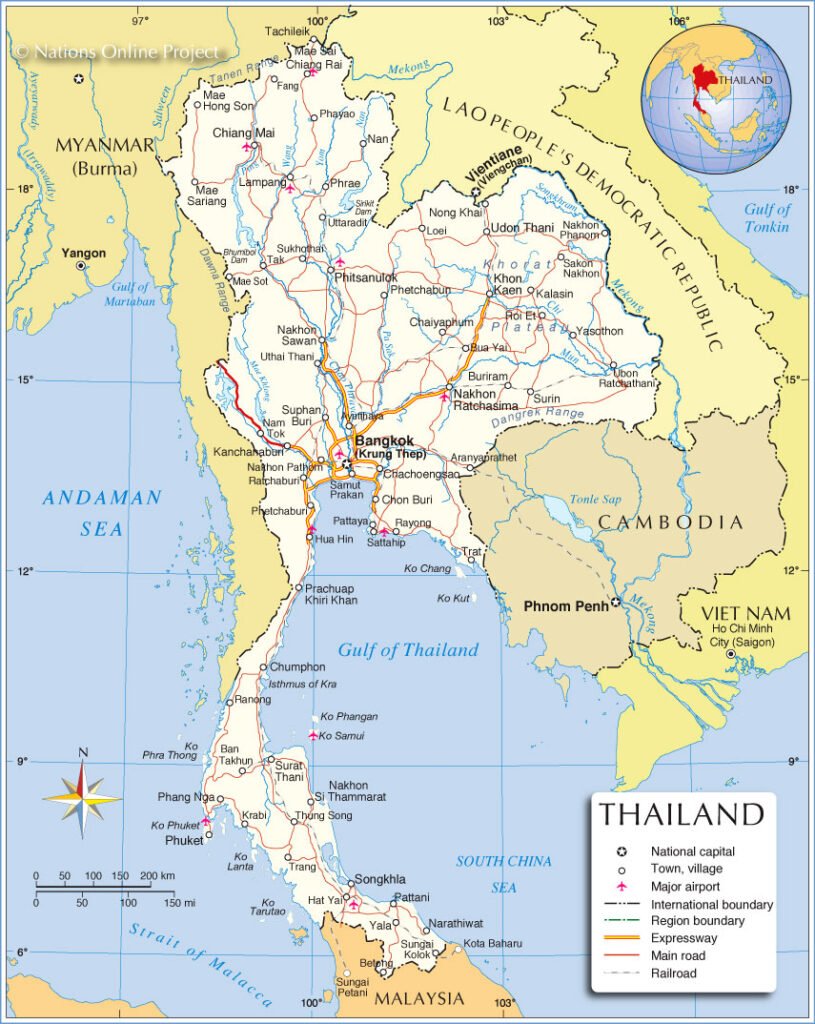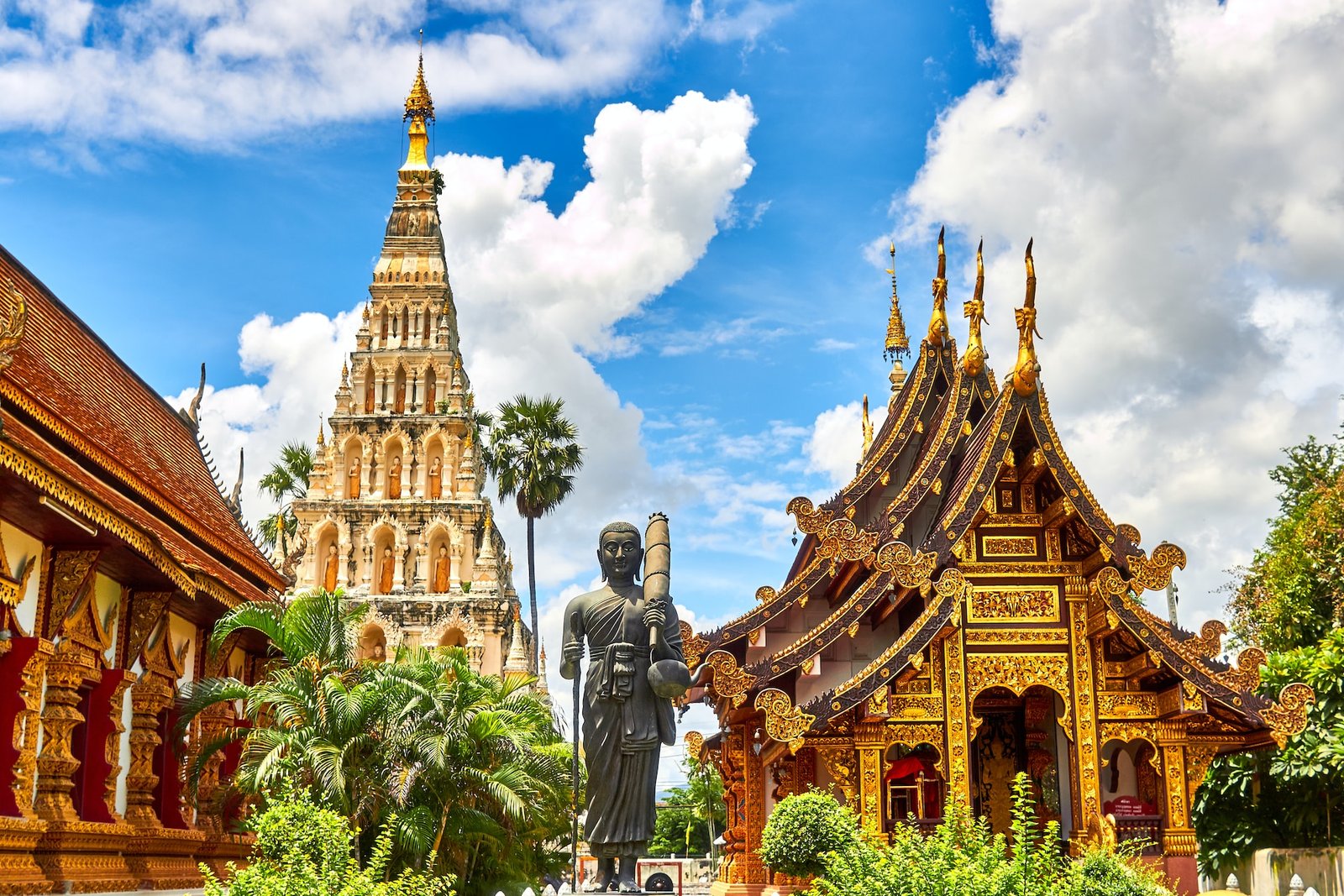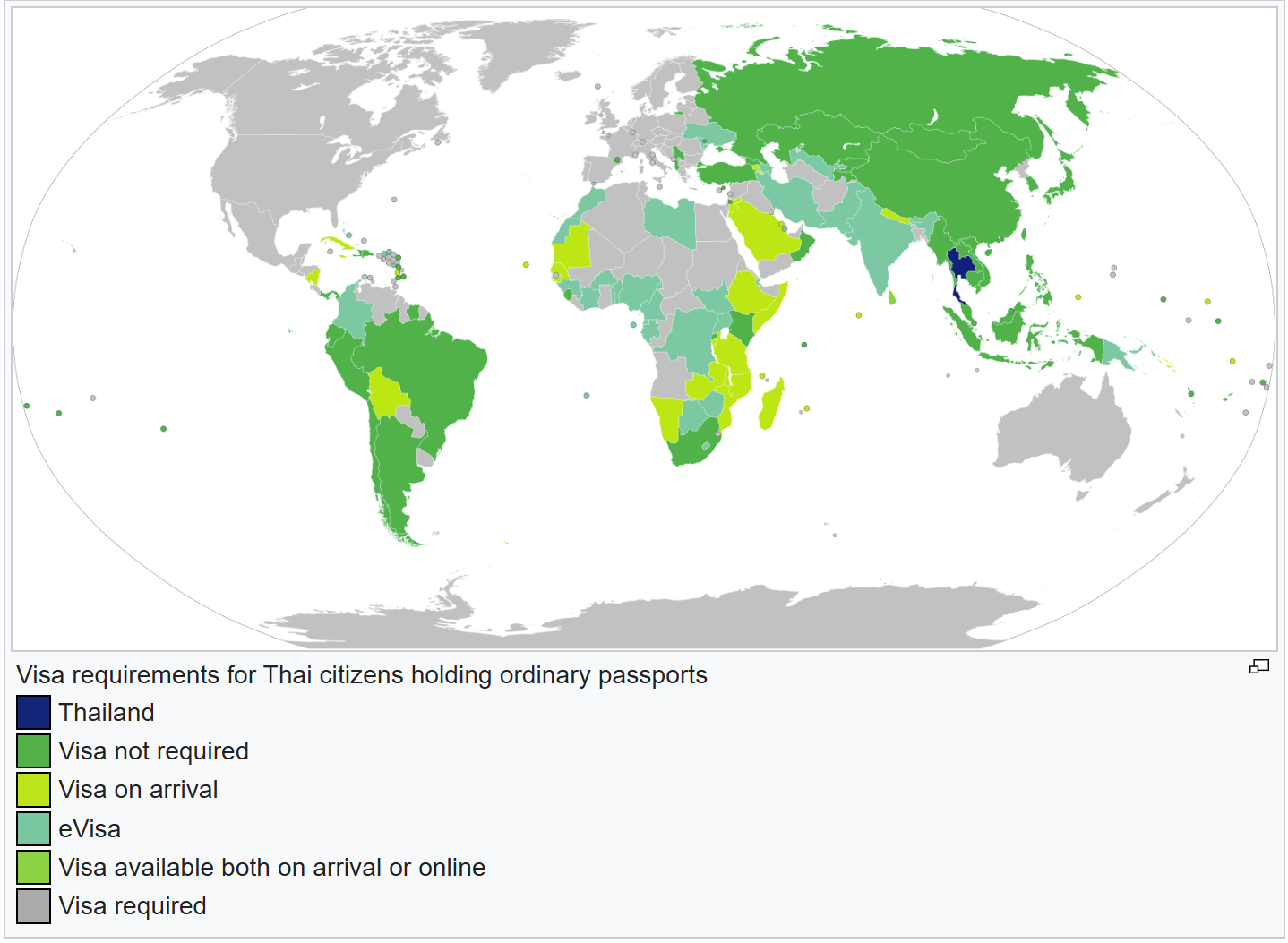How To Get Residency in Thailand: A Comprehensive Guide
Capital: Bangkok
Population: 66,041,239 (2024, 22nd)
Ethic Group: 80%Thai, 10%Thai Chinese, 3% Khmer, 7% Malays
Area: 513,120 km2(50th)
Offical Language: Thai
Currency: Thai Baht (As of July 22nd, 2025, 1 THB = 0.031 USD)
GDP per Captial (PPP): $26,320 (2025 estimated, 75th)
Human Development Index: 0.798 (2023, 76th)

Country Profile:
Thailand, an emerging industrialized nation located on the Indochinese Peninsula, is also a world-renowned tourist destination. Each year, it draws a significant number of visitors from both Western and Eastern countries who choose to make it their long-term home.
As of 2024, Thailand is a multi-ethnic nation with a population of approximately 67.9 million people. The primary ethnic group is the Thai, alongside over 30 other groups including the Lao, Chinese, and Malay. Over 90% of the population practices Buddhism. As a predominantly Buddhist country, Thailand’s culture is a vibrant blend of Indian, Chinese, and Cambodian influences, resulting in unique traditions and customs.
Visa & Immigration System:
In recent years, Thailand has steadily become one of the world’s most popular travel destinations. Data from 2023 indicates that the number of foreigners living long-term in Thailand has reached approximately 3 to 4 million.
For foreigners, two types of visas are most popular for extended stays:
1. Thai Elite Visa: This visa offers a direct pathway to Thai residency by investment. You can spend anywhere from 650,000 Thai Baht (around $20,000 USD) to 5 million Thai Baht (around $155,000 USD) to acquire 5 to 20 years of residency in Thailand.
The Thai Elite Visa is not directly tied to permanent residency or citizenship. Once the visa expires, holders will lose their residency rights, and you’re generally not permitted to work locally. However, this visa grants holders the right to freely enter and exit Thailand within its validity period, along with a range of exclusive membership services designed to enhance life in Thailand. These include benefits related to hotel accommodation, dining and shopping, co-working spaces, airport services, golf, health check-ups, and spa treatments.
2. The Retirement Visa (Non-Immigrant O-A): This visa requires you to be 50 years of age or older and demonstrate financial capability, typically by having 800,000 Thai Baht (around $22,000 USD) deposited in a local Thai bank. You can also meet the financial requirements through a combination of income and deposits.
The Thai Retirement Visa is also a non-immigrant visa, issued for one year at a time, and can be renewed indefinitely as long as the conditions are met.
Beyond these two common visas, Thailand’s Board of Investment launched the LTR (Long-Term Resident) Visa program in 2022. The LTR visa aims to attract global elites who have the flexibility to “work from anywhere,” and while it offers a 10-year validity and a straightforward approval process, its requirements for applicants are quite high. If you’re interested in the LTR visa, you can find more information by clicking the link on our website or visiting the official LTR program website.
In addition to the above three, Thailand also offers several other standard visa categories:
-
Work Visa: Similar to work visas elsewhere, you first need to be employed by a local employer in Thailand. You’ll also need to show a bank deposit of at least 20,000 Thai Baht (around $550 USD). Thai work visas are generally valid for one year and are renewable under the original conditions. After working in Thailand for three years, you become eligible to apply for local permanent residency.
-
Smart Visa: This is Thailand’s entrepreneur visa, managed by the Thailand Privilege Card Company Limited (TPC), the same entity responsible for issuing the Elite Visa. Essentially, the Smart Visa requires you to work, start a business, or invest in one of Thailand’s 14 key targeted industries. These include aerospace and logistics, next-generation automotive, health and wellness tourism, smart electronics, agriculture and biotechnology, future food, robotics and automation, biofuels and biochemicals, digital technology, human resource development in science and technology, waste management, and environmental management & renewable energy.
-
Destination Thailand Visa (DTV): Newly launched in May 2024, this is Thailand’s digital nomad visa program. The main requirement is a bank deposit of at least 500,000 Thai Baht (around $13,800 USD). This is a non-immigrant visa, valid for six months, and can be renewed annually under the original conditions for a maximum total duration of five years. Importantly, the DTV visa isn’t just for digital nomads; if you meet the financial criteria and are participating in Thailand’s Soft Power initiatives (such as taking courses in Muay Thai boxing, culinary arts, traditional Thai medicine, or music that promote Thai traditions and culture), you are also eligible to apply.

Thailand’s Permanent Residency:
One unique aspect of Thailand’s immigration system is that many popular long-term visas, like the Retirement Visa and Elite Visa, don’t directly lead to permanent residency or citizenship. This often means many expats living in Thailand either can’t, or simply don’t intend to, pursue permanent residency.
So, if you are interested in making Thailand your permanent home, what does it take?
Generally, foreigners need to meet at least one of five specific criteria to qualify for Thai permanent residency:
1. Work-Based Residency: You’ve held a work permit and been employed in Thailand for a minimum of three consecutive years. When you apply, your current employment contract must have over a year remaining, and your work permit must be active. Additionally, your continuous monthly income must have exceeded 80,000 Thai Baht for the past two consecutive years. Alternatively, your personal income tax consistently exceeded 100,000 Thai Baht for two consecutive years while working in Thailand.
2. Significant Investment: You’ve invested more than 10 million Thai Baht in a Thai company.
3. Family Ties to a Thai Citizen: You are a close relative (spouse, parent, or child) of a Thai citizen.
4. Expert Professional: You’re recognized as an expert in a particular field, have worked continuously in Thailand for at least three years, and hold at least a bachelor’s degree.
5. Other Approved Cases: Any other circumstances deemed eligible by the Thai Immigration Bureau.
When considering Thai permanent residency, keep these three important factors in mind:
1. Limited Annual Quota: The Thai government issues a maximum of 100 permanent residency permits per country each year. If your country’s quota is full, you’ll need to wait for the next year’s allocation.
2. Ongoing Limitations: Unlike some other countries, permanent residents in Thailand are still considered foreigners in many respects and face certain limitations. For example, even with permanent residency, you’ll still need to apply for a work permit to be employed in Thailand, though obtaining it is usually straightforward.
3. Application Process: The application involves both a short Thai language interview and a multiple-choice Thai written test.
Applications for permanent residency are only accepted during specific “window periods,” typically from October to December, as designated by the Thai government. During this time, you’ll need to have all your documents ready for submission, complete the interview and written test, pay the required fees, and provide your fingerprints.
To apply for Thai permanent residency, you’ll generally need:
-
Your passport, along with photos of all relevant pages.
-
Passport-sized photos (4×6 cm, with a white background).
-
A completed permanent residency application form (TM.9).
-
Proof of your address in Thailand.
-
Supporting documentation that demonstrates you meet one of the eligibility conditions.
Once all procedures are complete, you’ll receive a 180-day temporary stay permit, allowing you to remain in Thailand while your application is processed.
If your permanent residency is successfully granted, you’ll then need to report to your nearest police station to collect your permanent residency card and pay the final post-approval fees.
The initial visa application fee for Thai permanent residency is 76 million Thai Baht. After approval, there’s a one-time issuance fee of 191,400 Thai Baht (or 95,700 Thai Baht if your residency was obtained through family ties).
Citizenship:
Foreigners who hold Thai permanent residency and meet certain conditions may be eligible to apply for Thai citizenship (naturalization). To qualify, you must:
-
Be at least 18 years old.
-
Have resided in Thailand as a permanent resident for a minimum of 5 consecutive years.
-
Have no criminal record.
-
Demonstrate a legitimate source of income.
-
Be proficient in speaking, listening, reading, and writing Thai.
-
Be able to sing the Thai national anthem.
-
Score at least 50 out of 100 on the citizenship test.
Passport Power:
Thailand recognizes dual citizenship. The passport ranks 62th globally, and its holders can freely travel (either visa-free or with visa on arrival) to a total of 80 countries and regions worldwide. (July 22, 2025)

Useful Links:
The Tourism Authority of Thailand:https://www.tat.or.th/en#
Elite Visa:https://www.thailandelite.com/
Smart Visa:https://smart-visa.boi.go.th/smart/
LTR Visa:https://ltr.boi.go.th/